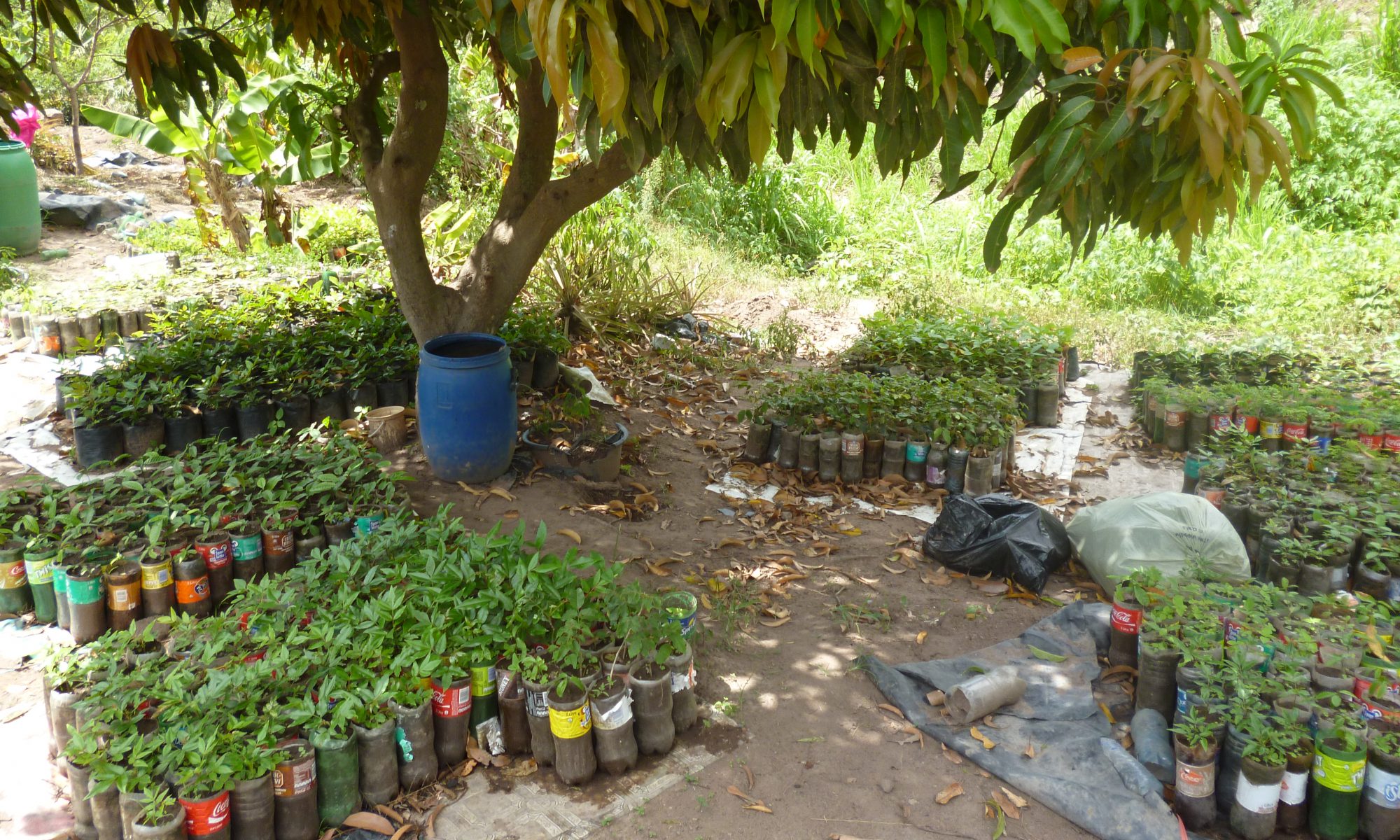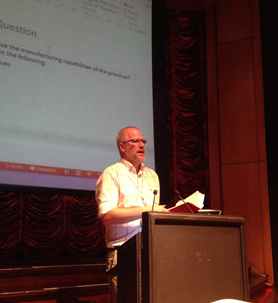by Audrey Chiedza and Jana Rogoll
Staff and students from Development Studies were active participants in the recent 5th annual Regional and Local Economic Development (RLED) Summit that took place in Durban from the 19th-20th October 2015. The theme of the summit was “Fast Tracking Sustainable Inclusive Growth and Development”. The summit was hosted by the provincial KwaZulu-Natal (KZN) Department of Economic Development, Tourism and Environmental Affairs in partnership with Co-operative governance and Traditional Affairs (COGTA), Agriculture and Rural Development as well as the South African Local Government Association. The aim is to create a platform for the exchange of information, and to build awareness as well as partnerships amongst various stakeholders from business, labour, government and the civil society. The end goal would be to generate a common vision to foster growth, investment, job creation and people centred development.
The opening session consisted of speakers such as Mr MP Duze, Senior General Manager at COGTA, Councillor Loganathan Naidoo, eThekwini Municipality speaker, and Honourable C Xaba, MPL. MEC for Agriculture and Rural Development. There was a question and answer session, and three think-tank conversations that offered more detailed information on the issues of effective regional and local economic development implementation, manufacturing and industrialization and the agrarian revolution.
Presentations within the field of Manufacturing and Industrialization came from a wide variety speakers including UKZN’s Mr Glen Robbins.
Glen Robbins presented on the Durban Large and Medium Manufacturing Firm Survey (2014) which he conducted together with Dr. Myriam Velia. Glen and Myriam are currently involved in a European Union funded project titled “Analysis of 2014 firm survey data, from the greater Durban area, in order to contribute evidence to local, provincial, and national policy for manufacturing firms to contribute to inclusive growth” which is run under the second phase of the Programme to Support Pro-Poor Policy Development (PSPPD II). This 12 month project is run under the South African Research Chair initiative (SARChI) in Applied Poverty Reduction Assessment.
Under the heading “Durban Manufacturing Survey – what can eThekwini and KZN learn?” he addressed in his presentation the various challenges faced by manufacturing firms in Durban and its surrounding areas. He posed the question how these challenges enhance or hinder a firm’s performance. The survey focuses on the opinions of CEOs or managing directors of medium and large scale manufacturing establishments in eThekwini municipality. Moreover, the research also covered spatial issues with regard to infrastructure.
The information gained from the survey will help to improve the understanding of the conditions that influence firms output/performance. When the conditions are well understood, the evidence can be used to enhance the manufacturing sector in Durban/ KZN. This information is especially important given the role that manufacturing sector plays as a contributor to the province economy (16% of GDP) and the employment sector (20% of provincial employment) (EDTEA, 2015).
The presentations were followed by questions and rich discussion in the audience.
Mr Nhleko presented on “Entrenching Industrialisation through Industrial Economic Hubs” and Mr Mduduzi Phahla shared his thoughts on “Aligning of Enterprise Development in the manufacturing sector”. Mr Nhleko focused on manufacturing and industrialization and stated that the Presidential Infrastructure Coordinating Commission was working tirelessly to create a variety of industrial hubs in the KZN region. The primary focus is to create employment as well as to ensure economic growth. KZN is at an advantage with regards to trade due to the seamless link from sea to road, from road to rail and from rail to air. Thus taking this into consideration, manufacturing industries can bring economic activity and help curb unemployment in KZN. The hubs or manufacturing parks are expected to be in full swing by March 2016.
Population projections have revealed that approximately 2.5 billion people will be added to the current world population hence there is a need to maximize on food production. It is also important to note that half the clothes in South Africa are imported compared to those that are exported. Likewise three quarters of the leather and tanning goods used in handbag and shoe manufacturing companies are also imported. Hence to curb this strain of procuring imported goods from distant market there has been a need to invest in local based markets and retaining of resources from local stakeholders and upcoming infant industries. There has been further promotion of each other’s manufactured goods as well as implemented mechanisms to cut costs. Of interest was the particular need to invest in agro-processing, or in other words, the processing of vegetables as well as setting up the processing of traditional medicines and herbs. Some of the medicines and herbs that people are buying at exorbitant prices are locally grown. If enough investment is channelled towards mechanisms of processing, it would be helpful in terms of affordable goods to most communities that run homeopathy clinics as well as for some populations that highly value the use of traditional medicines in their daily lives.
Unemployment could be further curbed by engaging the local community so that they can participate in the various economic projects. For instance, there is a need to shift towards appreciating the skills and talent of craftsmen and “bush mechanics” who did not necessarily get their qualifications at educational institutions, but happen to have the ability to do their jobs well. Valuing local skills and the input of the local people enables every individual to have an equal opportunity to participate in community development projects.
Four SARChI research assistants also attended the summit and had an overall positive impression of the day in terms of learning experiences.
One research assistant, Jana said, “Attending the summit was a good opportunity to get a better understanding of current and potential future economic development in KwaZulu-Natal. We (research assistants) however also felt that there is a stronger need to include academia into such platforms. The manufacturing survey shows politicians that they can learn a great share from academic research.”
Another research assistant, Audrey stated, “Attending the summit was an eye-opening experience particularly when the floor was open for debate at the think tanks. The summit enabled me to see the practical side of what I have learnt over the years in university – It cannot be denied that wealth creation and economic growth is simultaneous with accelerated industrial expansion which may also come with harm to the environment and affect the social lives of people in the region. For instance, the need to invest in furniture manufacturing by tapping into the wood reserves can come with detrimental effects. Bearing in mind the oscillating debates on climate change this may be a noble idea for trade and economic growth but it might be a matter of creating or worsening one problem to solve another. More so, people residing in a 5km radius to the said industrial sites suffer from respiratory problems thereby revealing that economic development.”

